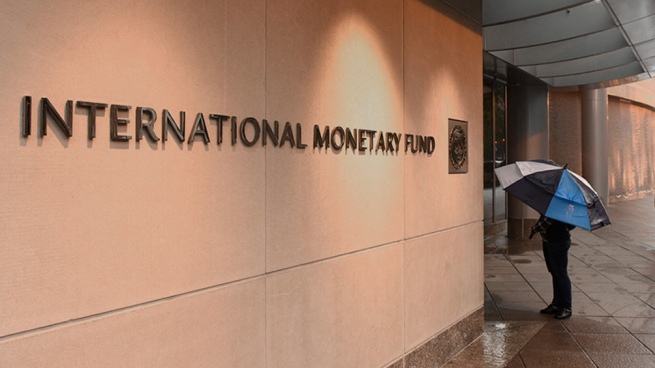World debt increased 28 percentage points to 256% of global GDP in 2020, according to the latest update of the IMF database, said specialists Vitor Gaspar, Paulo Medas and Roberto Perrelli in a publication on the agency’s blog.
There, the analysts explained that “the authorities have to find the balance between the strong indebtedness and the rise in inflation.”
“A significant tightening of financial conditions would exacerbate the pressure on governments, households and companies with the most indebtedness,” warned the same analysts who did the study
2020 saw the “largest increase in debt in a year since World War II”: the global financial crisis and deep recession pushed world debt to $ 226 trillion, they noted.
Before the crisis, the level of indebtedness was already high, but now “governments are facing a world with unusually high levels of public and private debt, new mutations of the virus and rising inflation,” they warned.
Fiscal and monetary policies were complemented during the worst moments of the pandemic; and monetary policy is now being reoriented towards rising inflation and inflationary expectations
Public debt contributed slightly more than half of the increase, and the public debt ratio soared to an unprecedented 99% of GDP; and private debt of nonfinancial corporations and households also reached new highs.
According to the IMF, advanced economies and China accounted for more than 90% of the $ 28 trillion debt increased in 2020 while most developing economies face limited access to funds and often interest rates. higher.
“If the public and private sectors are forced to deleverage simultaneously, growth prospects will be clouded,” the report’s authors noted.
Both emerging market and low-income countries face high debt ratios due to a sharp decline in nominal GDP in 2020.
Public debt in emerging markets reached record highs and in low-income countries it rose to levels not seen since 2000.
The sharp increase in debt was justified by the need to “protect people’s lives, preserve jobs and avoid waves of bankruptcies,” they explained, and stressed that “if governments had not taken measures, the social and economic consequences would have been devastating. “
According to the IMF, advanced economies and China accounted for more than 90% of the $ 28 trillion debt increased in 2020 while most developing economies face limited access to funds
But escalating debt amplifies vulnerabilities, especially as financing conditions become restrictive: Higher levels of indebtedness in many cases limit the ability of governments to support recovery and the ability of the private sector to invest to medium term.
Therefore, they considered that a “crucial challenge” lies in “finding the right combination of fiscal and monetary policies in an environment of high debt and rising inflation.”
The specialists warned that “it is possible that concerns about debt sustainability will intensify” and indicated that “the risks will be amplified if world interest rates rise faster than expected.
Fortunately, fiscal and monetary policies were complemented during the worst moments of the pandemic; and monetary policy is now properly reorienting itself toward rising inflation and inflationary expectations.
The specialists warned that “it is possible that concerns about debt sustainability will intensify” and indicated that “risks will be amplified if world interest rates rise faster than expected and if growth is faltering.”
Flexibility, agility to adapt to circumstances and a commitment to credible and sustainable medium-term fiscal plans are factors that would reduce debt vulnerabilities and facilitate the task of containing inflation.
“A significant tightening of financial conditions would exacerbate the pressure on the most indebted governments, households and companies. If the public and private sectors are forced to deleverage simultaneously, growth prospects will be clouded,” they said.
Therefore, they noted, “the crucial thing will be to find the right balance between policy flexibility, the agility to adapt to changing circumstances and a commitment to credible and sustainable medium-term fiscal plans; this strategy would reduce debt vulnerabilities and it would make it easier for central banks to contain inflation. “

















